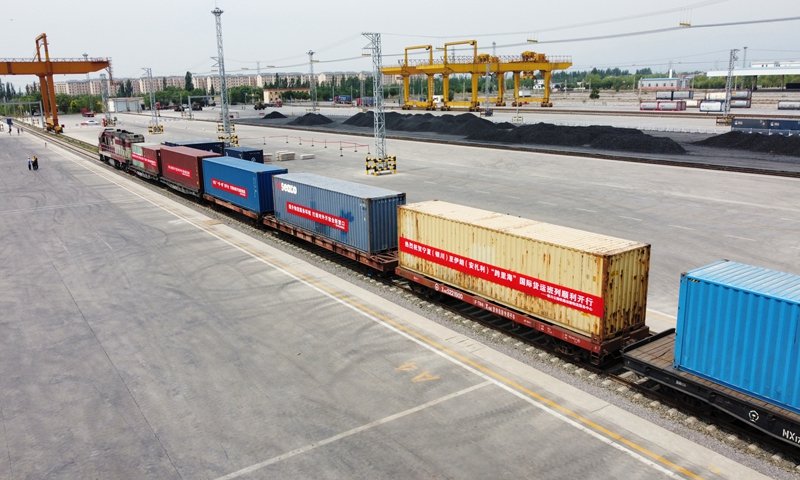Tehran, 22 June 2022 (TDI): Northwest China’s Ningxia Hui Autonomous Region launched the first sea-rail intermodal freight train to Iran on Monday, forming a new international logistics channel via the Caspian Sea.
On Monday, the first Trans-Caspian international freight train departed from Ningxia, China. By reducing the time and cost of sending goods, this train will create a new international logistics channel connecting China to Western Asia.
روز گذشته نخستین قطار باری بینالمللی Trans-Caspian از نینگشیا #چین عازم #ایران شد. این قطار با کاهش زمان و هزینه ارسال کالا، کانال لجستیک بینالمللی جدیدی را در اتصال چین به غرب آسیا ایجاد میکند و در توسعه تبادلات تجاری ایران و چین اهمیت بسزایی دارد. @IRIMFA @MFA_China pic.twitter.com/48ykoQTCU1
— IRAN in CHINA🇮🇷🇨🇳 (@IraninChina) June 21, 2022
It is very important in the development of Iran-China trade exchanges. The new line, combined with other Europe-China freight rail routes, will contribute to building a global transportation network covering sea, rail, and road transport.
The train, which will run about 8500 kilometers, departed from Yichuan, the capital city of Ningxia, and it will cross the Caspian Sea via Kazakhstan. It is scheduled to arrive in Bandar-e-Anzali or Anzali port in Northern Iran in about 20 days.
The new route takes about twenty days less than the sea route and saves $897 per container, compared with the former international freight railway line from Yichuan to Tehran, Iran.
The train carried 52 standard containers with goods worth $3.06 million, as per China’s national broadcaster. Experts noted that the building of the freight railway line is building a low-cost, cross-border freight channel for Ningxia and surrounding regions.
It will link with Iran and the Middle East, which is conducive to promoting the export of local products. This will also encourage enterprises in the western and eastern parts which are in the field of light industry, electronics, high-tech, and new energy to gather in Yichuan and export their products to Iran and the Middle East.
At the same time, this will help import rare materials, boost the rapid development of the logistics industry, process trade and promote economic exchanges between Ningxia, its neighboring provinces, and Iran.
Forming such a trade route will result in increased bilateral trade between both Iran and China though the trade volume between the two countries already stands at $14.8 billion.








